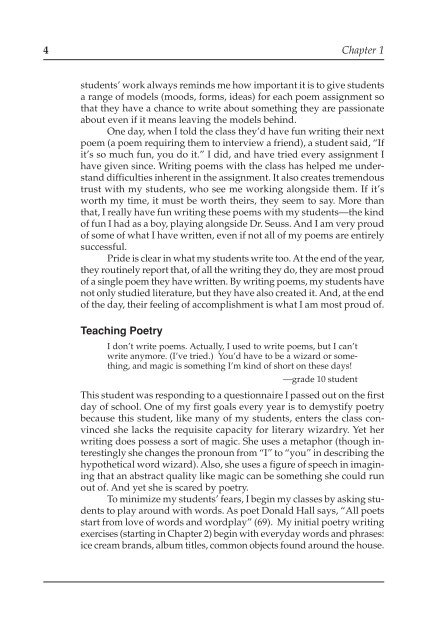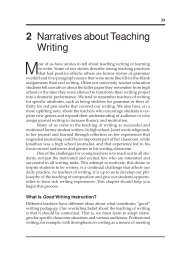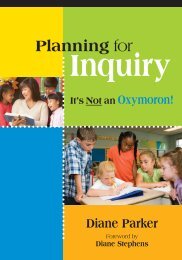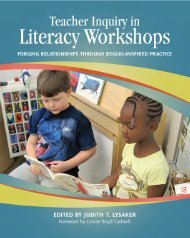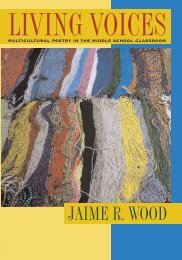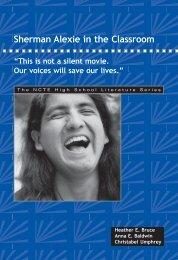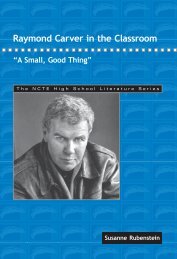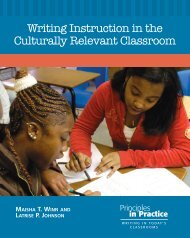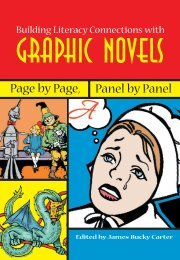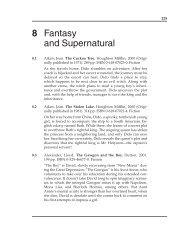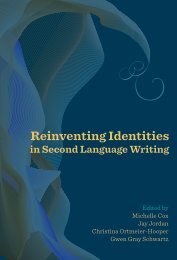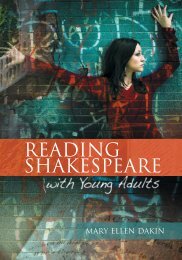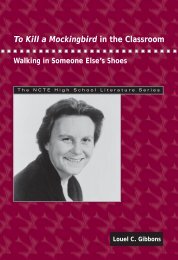1 Everyday Poets
1 Everyday Poets
1 Everyday Poets
You also want an ePaper? Increase the reach of your titles
YUMPU automatically turns print PDFs into web optimized ePapers that Google loves.
4 Chapter 1students’ work always reminds me how important it is to give studentsa range of models (moods, forms, ideas) for each poem assignment sothat they have a chance to write about something they are passionateabout even if it means leaving the models behind.One day, when I told the class they’d have fun writing their nextpoem (a poem requiring them to interview a friend), a student said, “Ifit’s so much fun, you do it.” I did, and have tried every assignment Ihave given since. Writing poems with the class has helped me understanddifficulties inherent in the assignment. It also creates tremendoustrust with my students, who see me working alongside them. If it’sworth my time, it must be worth theirs, they seem to say. More thanthat, I really have fun writing these poems with my students—the kindof fun I had as a boy, playing alongside Dr. Seuss. And I am very proudof some of what I have written, even if not all of my poems are entirelysuccessful.Pride is clear in what my students write too. At the end of the year,they routinely report that, of all the writing they do, they are most proudof a single poem they have written. By writing poems, my students havenot only studied literature, but they have also created it. And, at the endof the day, their feeling of accomplishment is what I am most proud of.Teaching PoetryI don’t write poems. Actually, I used to write poems, but I can’twrite anymore. (I’ve tried.) You’d have to be a wizard or something,and magic is something I’m kind of short on these days!—grade 10 studentThis student was responding to a questionnaire I passed out on the firstday of school. One of my first goals every year is to demystify poetrybecause this student, like many of my students, enters the class convincedshe lacks the requisite capacity for literary wizardry. Yet herwriting does possess a sort of magic. She uses a metaphor (though interestinglyshe changes the pronoun from “I” to “you” in describing thehypothetical word wizard). Also, she uses a figure of speech in imaginingthat an abstract quality like magic can be something she could runout of. And yet she is scared by poetry.To minimize my students’ fears, I begin my classes by asking studentsto play around with words. As poet Donald Hall says, “All poetsstart from love of words and wordplay” (69). My initial poetry writingexercises (starting in Chapter 2) begin with everyday words and phrases:ice cream brands, album titles, common objects found around the house.


